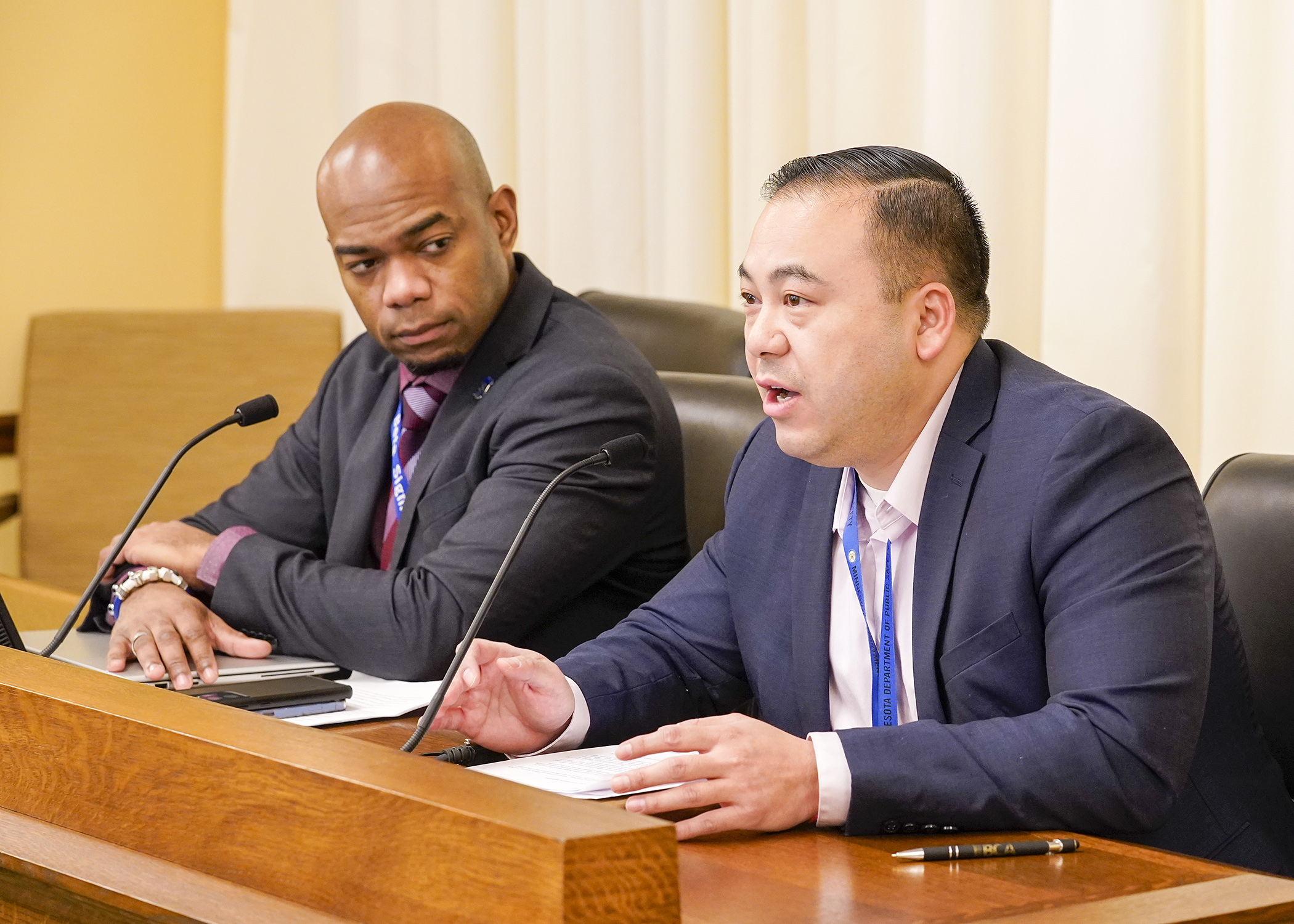Driver’s license applicants could volunteer demographic info under bill that gains committee OK

Policymakers have learned anecdotally and through information shared by local law enforcement that there’s a disparity in terms of which drivers get pulled over and what happens to them, said Rep. Cedrick Frazier (DFL-New Hope).
He’s sponsoring a bill that would build another dataset aimed at informing policymakers by allowing demographic information to be collected on driver’s license applications.
HF282 would create an optional field on applications where people could self-identify their race or ethnicity. The information would be private — not marked on the license or shared with law enforcement at the point of a stop. However, anonymized, aggregated data would be shared with the Office of Traffic Safety for research, analysis and reporting.
Without objection, the House Transportation Finance and Policy Committee approved the bill, as amended, Tuesday and sent it to the House Judiciary Finance and Civil Law Committee.
Quality data is essential to ensuring a full picture of what is happening to people in the custody of the state, whether at a side of the road or in a prison, said Justin Terrell, executive director of the Minnesota Justice Research Center.
Providing racial or ethnic information would be optional on new license applications and renewals. It would take about four years to get complete data, but the Department of Public Safety’s Driver and Vehicle Services Division will start collecting information as soon as possible, said Director Pong Xiong.
There would be ways to normalize the data if any demographic is underreporting, said Mike Hanson, director of the Office of Traffic Safety.
Education will be key to getting people to opt-in, Xiong said, adding his department is excited to work with the community in explaining how the data is collected, used and could benefit the state. A similar program in Colorado has seen about 38% of applicants respond to its opt-in question.
The intent is the data be used only as it relates to traffic law enforcement.
Rep. Bjorn Olson (R-Fairmont) said he appreciates the bill’s narrow scope in addressing an egregious issue, but cautions the information could conceivably be used for more such monitoring when people move, buy alcohol or purchase a firearm.
“I just hope the floodgates don’t open to a point where we lose control of this river,” Olson said.
Related Articles
Search Session Daily
Advanced Search OptionsPriority Dailies
Speaker Emerita Melissa Hortman, husband killed in attack
By HPIS Staff House Speaker Emerita Melissa Hortman (DFL-Brooklyn Park) and her husband, Mark, were fatally shot in their home early Saturday morning.
Gov. Tim Walz announced the news dur...
House Speaker Emerita Melissa Hortman (DFL-Brooklyn Park) and her husband, Mark, were fatally shot in their home early Saturday morning.
Gov. Tim Walz announced the news dur...
Lawmakers deliver budget bills to governor's desk in one-day special session
By Mike Cook About that talk of needing all 21 hours left in a legislative day to complete a special session?
House members were more than up to the challenge Monday. Beginning at 10 a.m...
About that talk of needing all 21 hours left in a legislative day to complete a special session?
House members were more than up to the challenge Monday. Beginning at 10 a.m...